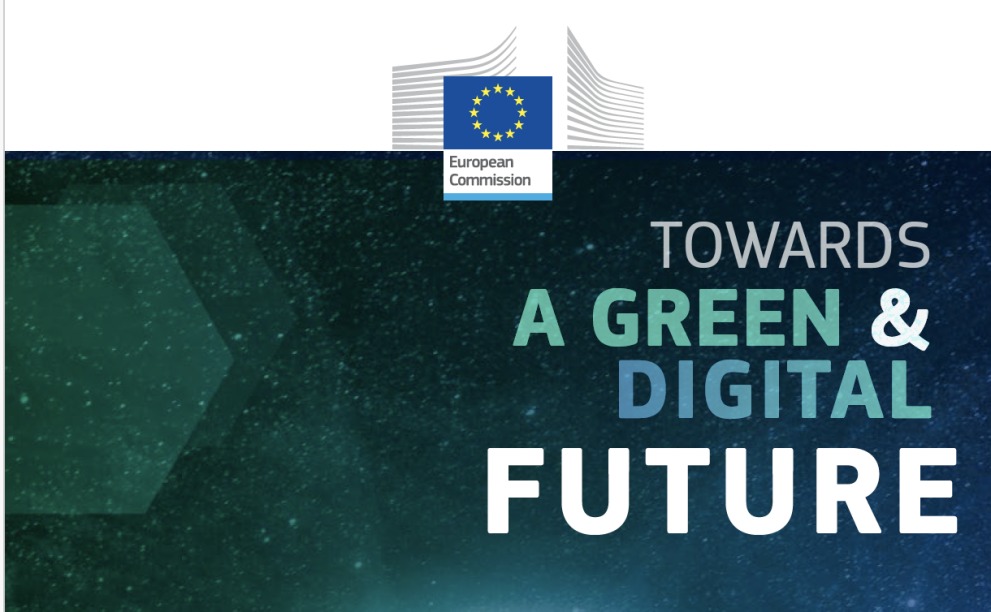JRC report "Towards a green and digital future" now available in Latvian

The European Commission’s Joint Research Centre (JRC) policy report “Towards a green and digital future” is available in Latvian, prepared by the Latvian Information and Communication Technology Association (LIKTA).
The European Union aims to be sustainable, fair, and competitive. To keep the planet liveable and seize economic opportunities, the European Union is engaging in a swift and inclusive transition towards environmentally sustainable lifestyles and economies. The green transition aims to achieve sustainability, and combat climate change and environmental degradation. At the same time, the growing significance of digital technologies is transforming societies and economies. In the digital transition, the European Union aims to harness digital technologies for sustainability and prosperity, and to empower citizens and business.
This study examines how the green and digital transitions can be successful. Both the green and the digital transitions are political priorities of the European Commission that will shape our future in the long-term. While these two simultaneous, or ‘twin’, transitions, can reinforce each other in many areas, they are not automatically aligned. For example, digital technologies have substantial environmental footprints that go against the targets of the green transition. This is why a proactive and integrative approach to managing the twin transitions is important to ensure their successful implementation.
The goal of this study is to analyse how the European Union can make sure that these two transitions mutually reinforce each other. In doing so, the study focusses on five of the most greenhouse gas emitting sectors:
- Agriculture
- Buildings and construction,
- Energy
- Energy-intensive industries
- Transport and mobility
Based on this analysis, the report derives key requirements for the success of the European Union’s green and digital transitions.
The Digital Decade Compass outlines targets for 2030 and sets a path towards empowering “people and businesses to seize a human-centred, sustainable, and more prosperous digital future”. Furthermore, the European data strategy aims to take the opportunity of increased data availability to address individual needs and create value for society and the economy.
Key challenges for entrepreneurs in Europe’s transition to a Green and Digital Future in the context of economic development:
- Create enabling markets. Markets have to internalise the environmental costs of products to give long-term investment incentives for green-digital solutions and overcome stranded assets and sunk costs.
- Ensure diversity of market players. The market for green-digital solutions should not be dominated by a few big players but should be a healthy ecosystem that also includes small- and medium-sized companies and start-ups to ensure competition and innovation.
- Equip labour with relevant skills. Education and training has to ensure that labour is equipped with the skills they need to handle green-digital technologies and that a sufficient amount of experts are available to drive innovation.
The document’s localisation in Latvian is provided as part of the European Platform for Digital Skills and Jobs in Latvia (No 2020-LV-IA-0217) project of the European Commission.





